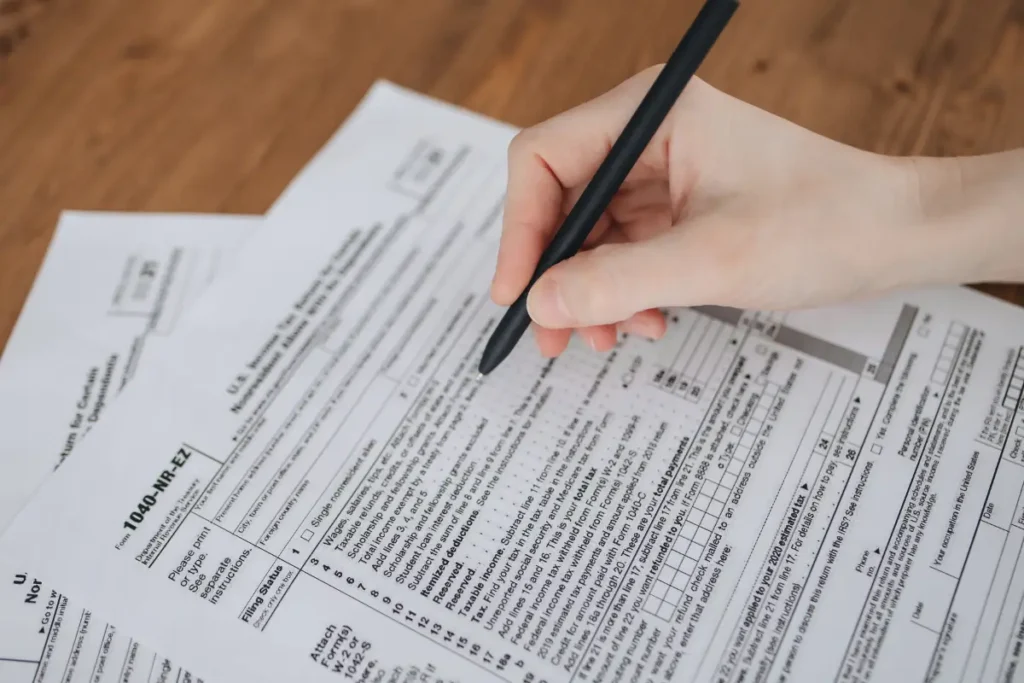How to Avoid Property Fraud in Bangalore: A Legal Perspective
Escalating Cases of Property Fraud
Bangalore’s booming real estate market has provided scopes for property investment. Simultaneously, it has emerged as a hub for property fraud. The price value of land and property, coupled with the complexity of legal procedures, creates vulnerabilities that are exploited by unscrupulous elements. With such cases of fraudulent transactions like fake ownership claims, forged documents, and the sale of mortgaged properties, losses both financially and in legal battles have increased, leaving many buyers in the lurch. So, it is quite essential to know the common types of property fraud and precautionary measures to be undertaken proactively about the law while dealing with Bangalore property.

Impersonation and Forged Documents of Fake Ownership
Several common schemes plague the Bangalore real estate market. Identifying these common schemes is the first step toward self-protection.
This is the most common type of property fraud. It involves a scam where fraudsters pretend to be the actual owner of the property or create fake ownership documents for dupe buyers.

Impersonation: The fraudster takes the identity of the real owner, forges identification documents, and even cooks up stories to convince the buyer. They may even draft fake power of attorney documents authorizing them to sell the property.
Forged Documents: This involves creating fake property documents, such as title deeds, sale deeds, Khata certificates, and other relevant records. Such forged documents are often highly sophisticated and quite hard to detect without an expert’s scrutiny.
How it Works: They usually sell the property at a very attractive price to attract buyers. They present the forged documents and pretend to be the owner during the negotiation process. Once they receive the payment, they run away, leaving the buyer with worthless documents and no legal claim on the property.
Red Flags for Fake Ownership Claims
Unrealistic Pricing: If the property is priced much below the market value, that raises an alarm.
Pressure to Close in a Rush: Fraudsters often try to pressure the buyer so that he closes the deal before he has enough time to perform effective due diligence.
Refusal to Provide Original Documents: If he is unwilling to give the originals or only gives photostats, it is something to be suspected.
Differences in Documents: Any inconsistency or mismatch with the documents, such as signatures in different places or mismatch of details, should be subjected to scrutiny.
Unconventional Methods of Payment: Claims for payment in cash or payment into foreign accounts should be approached with extreme suspicion.
Selling of Mortgaged Properties (Non-Disclosure of Encumbrances)
Other common fraud types include selling mortgaged property or property subject to other encumbrances without the disclosure of the buyer to the same.

Hidden Mortgages: The seller might have taken a loan on the property and mortgaged it to some bank or financial institution. He will then sell the property to the buyer without disclosing the presence of any mortgage.
Other Encumbrances: Other encumbrances would include lien, legal disputes, and pending dues against the property. These encumbrances can provide a lot of legal hassle after the purchase for the buyer.
How it Works: The seller hides the fact that there is a mortgage or other liens attached to the property at the time of sale. The buyer, unaware of the liabilities, buys the property. Later, the buyer may be sued by the lender or other parties who have a claim on the property.
Red Flags for Mortgaged Properties
Reluctance to provide Encumbrance Certificate: An encumbrance certificate is an important document, which reflects any existing mortgages, liens, or legal disputes concerning the property. If the seller is reluctant to provide an EC, then this also raises suspicion.
Vague Explanations about Property History: When the seller gives vague or inconsistent explanations about the history or ownership of the property, then it may be a sign of hidden encumbrances.
Lack of Clear Title: A valid property transaction must have a clear and marketable title. It must be searched for in case of any doubts or ambiguity of the title.
Legal Precautions to Avoid Property Frauds in Bangalore
Avoiding property fraud in Bangalore is very important, by taking the following legal precautions:

Extensive Due Diligence: A detailed due diligence process shall include:
Title Search: Carry out a title search at the sub-registrar’s office to confirm the ownership history and to check for any encumbrances.
Documentation Validity: Verify the authenticity of property documents, which might involve title deeds, sale deeds, Khata certificates, and encumbrance certificates. Consider hiring a lawyer so that he can verify those records.
Physical Inspection: Carry out a physical inspection of the property to determine its condition and ensure that it matches the description in the documents.
Background Check: Carry out a background check on the seller to verify his or her identity and integrity.
Engage a Reputable Lawyer: Engage with reputable property lawyers in Bangalore to guide you through the transaction. The lawyer will:
Carry out Legal Due Diligence: He or she will carry out an extensive legal due diligence process.
Draft and review documents relating to transaction legal documentation, thus making the said transactions appear not only legal in all perspectives but also one which guards one’s interests.
Rendering legal advice on each aspect of a given transaction.
Getting an EC: Getting the same at the sub registrar’s desk. It enables checking against mortgages, liens, and judicial disputes about that specific piece of property.
Verify the Khata certificate and extract from Bruhat Bengaluru Mahanagara Palike (BBMP) to confirm the tax records of the property and ownership details.
Public Notice in Newspaper: Publish a public notice in a local newspaper about the intended purchase of the property. It will allow all who have a claim on the property.
Payment through Secure Channels: Pay through secure and traceable channels, such as bank transfers or demand drafts. Avoid cash transactions.
Register the Sale Deed: Register the sale deed at the sub-registrar’s office immediately after the transaction is completed. Registration gives legal validity to the transaction and protects your ownership rights.
Property fraud is a very serious issue in Bangalore, but by taking proactive legal precautions and conducting thorough due diligence, you can significantly reduce your risk. Getting a reputable property lawyer to help navigate the complexities of property transactions and ensuring a safe and legally sound purchase is also important. Being vigilant and informed will protect you from falling victim to property fraud and securing your investment.
This Chapter seeks to outline red flags with potential fraud, the imperative legal steps to be carried out, and vigilance at times reinforced by current awareness.
Alert Indications of Potential Frauds
Fraud prevention prevents losses. It is essential in the early detection of symptoms of possible fraud. Warn in case of the following signs below, among others:

Uncompleted or Absent Documentation
Missing Chain of Title: A full chain of title is important and must trace the ownership of the property back to its original allocation or ownership. Missing links in the chain are a very serious concern.
Photocopies Instead of Originals: While copies might be acceptable for an initial review, originals should be demanded. Repeated excuses and failure to produce originals a major red flags.
Discrepancies in Documents: Any inconsistency in dates, names, signatures, property descriptions, or any other details between different documents should be thoroughly investigated. Even minor discrepancies may point to forgery.
Tampered Documents: Check for erasures, overwriting, or alterations. Unless professionally examined, these may go unnoticed.
Lack of Khata or Encumbrance Certificate: A certificate of Khata (property tax record) or an encumbrance certificate (EC) should raise the alarm immediately. These documents will establish ownership and confirm that there are liabilities against the property.
Too-Good-to-Be-True Deals
Unrealistically Low Prices: Properties offered far below the market price can be a major red flag. While there are certainly surefire deals, very low prices tend to be scams.
Pressure to Close Fast: Sometimes, fraudsters try to create the perception that the sale has to happen right away so that people have little time to run appropriate due diligence. They might point to other interested buyers and, finally, an ever-changing or impending price rise.
Unusual Payment Methods: Be wary of demands for cash payments, payments to foreign accounts, or third parties who have no relation with the transaction. Insist on traceable payment methods such as bank transfers or demand drafts.
Reluctance of the Seller to Interact with Professionals: If the seller deters you from hiring an attorney or conducting a title search, then it is a red flag sign of fraud. A genuine seller should not have anything to worry about professional scrutiny.
Vague or Evasive Answers: If the seller gives you vague or evasive answers regarding the property, its history, or the process, it could signal potential property fraud.
Legal Precautions Against the Chance of Property Fraud
Proactive legal care always saves a person from potential fraudulent attacks.

Search at sub-registrar’s Office for Title:
It involves detailed verification at the sub registrar’s office, where the property is registered in government records, to help detect potential property fraud. This verification reveals all previous owners, outstanding mortgage interests, recorded liens, and pertinent disputes, ensuring transparency and minimizing the risk of property fraud.
Encumbrance Certificate (EC): One may obtain an EC from the sub-registrar’s office. The certificate would contain the entire record of registered encumbrances over that property for a particular period.
Khata Verification at BBMP: The Khata certificate and Khata extract must be verified at the Bruhat Bengaluru Mahanagara Palike (BBMP) office. It will prove the tax paid records, ownership details as the municipal authorities have registered them, and any pending arrears of property tax.
Check Revenue Records: Check the revenue records at the local Tahsildar’s office to prove land records, survey details, and any restrictions on land use.
Due Diligence
Carry out a physical inspection of the property to ascertain its physical condition, boundaries, and compliance with building regulations. In case of necessity, engage a licensed surveyor to ensure verification of the property boundaries by making them correspond with the existing survey records.
Public Notice in Newspaper: Publish a public notice in a local newspaper stating your intention to buy the property. This will give anyone who has a claim over the property an opportunity to come forward and object.
Background Check on the Seller: A background check of the seller would confirm his identity and credibility. It can be done by checking his address, contact details, and previous legal records.
Opinion of the law: From the best real estate lawyers in Bangalore, engage him to scrutinize all documents, perform his legal due diligence, and provide his legal opinion about the title to the property and the transaction
Vigilant and Informed
The best defense against property fraud is being vigilant and informed. Knowledge of common types of fraud and recognizing red flags and the resultant proactive legal steps can certainly lower risks to the minimum.
Educate Yourself: Keep abreast of the latest scams and fraudulent practices in the real estate market.
Be Cautious of Unrealistic Deals: Remember the adage, “If it sounds too good to be true, it probably is.”
Don’t Rush the Process: Take your time to do thorough due diligence and don’t pressure anyone into closing a deal as quickly as possible.
Seek Professional Advice: Consult a reliable property lawyer and other professionals like surveyors and valuers, to safeguard against property fraud and guide the process.
With watchfulness accompanied by professional advice, you can avoid pitfalls when dealing with the Bangalore property market and thus avoid the devastating repercussions of property fraud. After all, prevention is said to be better than cure.







